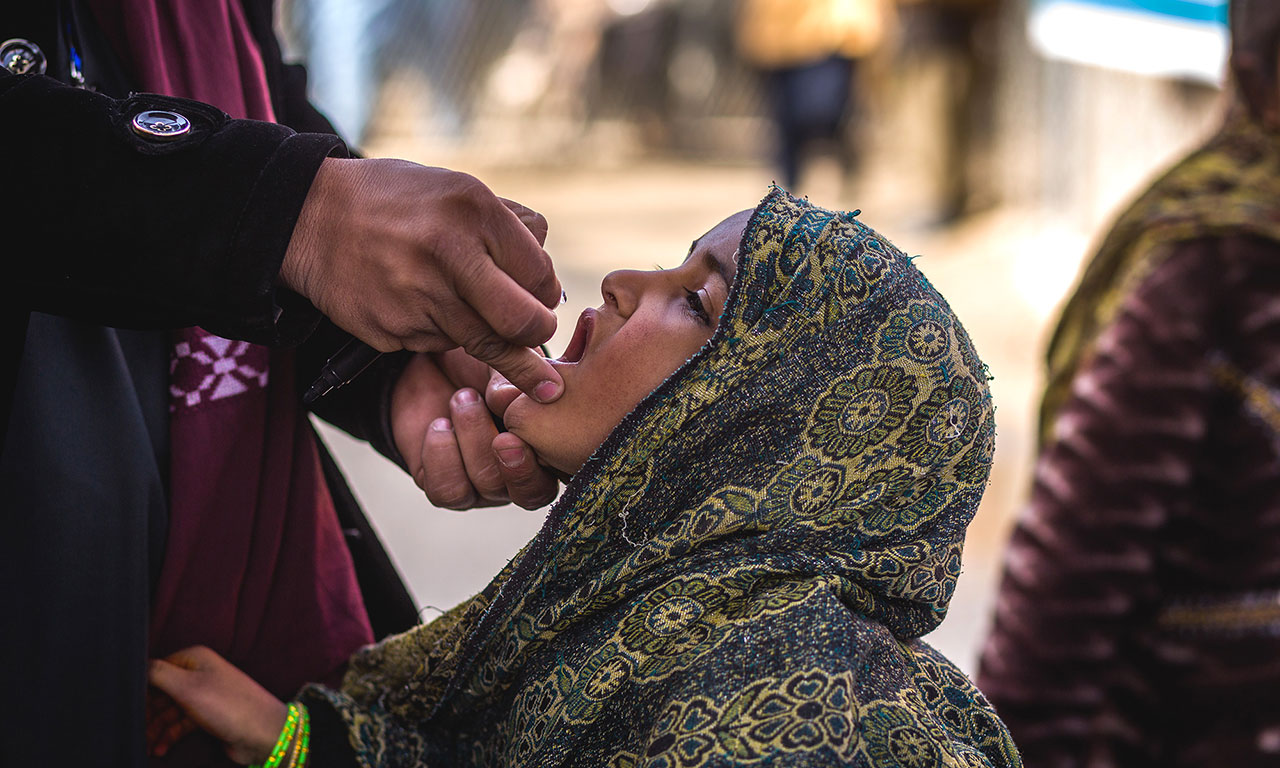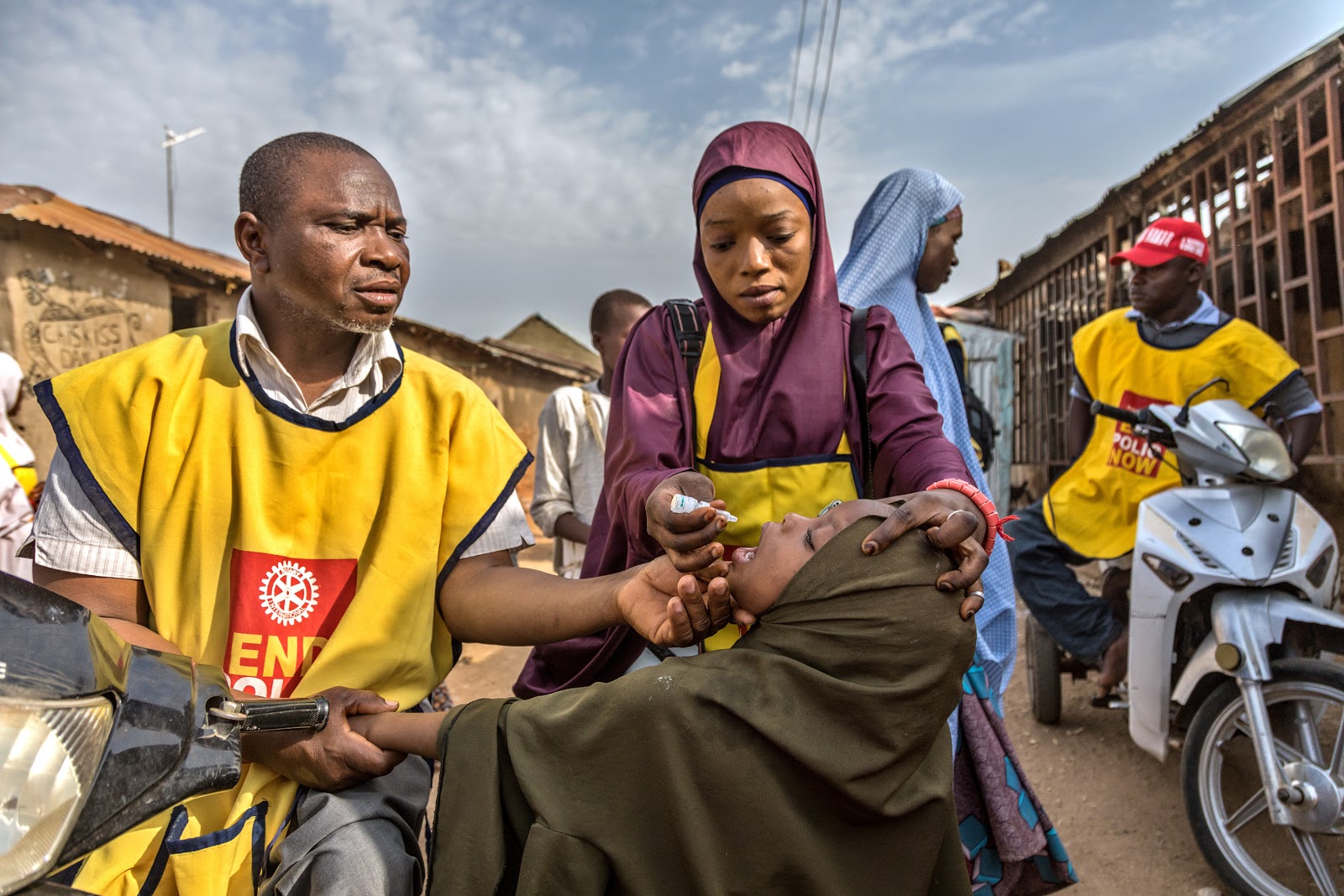‘We have maintained our polio-free status for 20 years ‒ an enormous achievement of which everyone should be proud.’ That was the message from David Salisbury, Chair of the European Regional Commission for the Certification of Poliomyelitis Eradication, as the region marked two decades without polio.
Professor Salisbury added that the Commission had recently reviewed all 53 countries in the European Region and confirmed that there is no ongoing transmission of wild poliovirus.
However, he was also clear that continued success in suppressing polio is not guaranteed. ‘Wild polio transmission continues in other parts of the world. While that goes on, we remain at risk,’ Prof Salisbury added. He also pointed to related examples of vaccine-derived polio in the United Kingdom and Israel, as well as similar challenges in the United States.
‘We have to remain on guard,’ Prof Salisbury said. ‘We must vaccinate our populations to a very high level. And, equally important: we must maintain surveillance. We have done this for 20 years. We must continue to do this until we achieve global eradication.’

Global effort
Europe’s success to date is part of a wider global campaign to eradicate polio. Cases of the debilitating (and sometimes fatal) disease have fallen by 99% since the 1980s, thanks to concerted efforts by international agencies, philanthropic organisations, national health authorities and the public to achieve high vaccination rates. Africa was certified polio-free in 2020 ‒ a major milestone in the history of global health.
Wild poliovirus is now endemic in just two countries: Pakistan and Afghanistan. However, imported cases have been reported in other countries and the disease can spread if the population is not protected through vaccination.
Read: Polio in Afghanistan ‒ Can the Taliban deliver eradication?
Oral polio vaccine (OPV) contains a weakened form of the poliovirus. This can, on rare occasions, be excreted by a vaccinated child and may spread to others in areas with poor sanitation and low vaccination rates. That is why sewage samples are collected and tested for poliovirus. So-called novel polio vaccines help to address this problem as they pose lower risk of vaccine-derived polio.
Polio endgame?
In 1980, there were almost 2,700 confirmed cases of polio in Europe. ‘Thanks to vaccination, polio is on the verge of becoming a story of the past,’ according to Dr Hans Kluge, Regional Director for Europe, WHO. ‘We stand on the cusp of eradicating polio, making it only the second disease after smallpox to be consigned to history.’
Dr Kluge emphasised that vaccine-derived poliovirus can spread in pockets of under-immunisation, making it paramount to ensure high vaccination coverage in all population groups. He praised the response of health authorities in Tajikistan which detected and halted an outbreak caused by a poliovirus circulating in Afghanistan and Pakistan. ‘This clearly illustrates that until polio is eradicated, every country will remain at risk of polio reinfection.’
For Europe, preserving polio-free status is central to the region’s Immunization Agenda 2030. To support the international polio eradication campaign, global leaders have pledged an additional $2.6 billion towards the Global Polio Eradication Initiative’s 2022-2026 strategy. Full implementation is expected to cost around $4.8 billion.

At EU level, the European Commission and the European Centre for Disease Prevention & Control (ECDC) have issued a joint statement warning that ‘polio remains an international threat…that we can tackle, and we have a preventive tool for’. Officials called for vigilance in the face of the stark reminders from Europe and the US that the virus has not gone away.
‘As long as non-vaccinated or under-vaccinated population groups in European countries remain, we run the risk that the virus will reappear in Europe,’ they said. ‘It is essential to maintain high vaccination coverage at EU level in the general population and increase vaccine uptake in pockets of under-immunised populations.’
They also called on EU governments to ensure surveillance systems are in place to identify any circulating polioviruses, and urged continued support for global vaccination efforts, including in Afghanistan where the EU has mobilised €110 million in recent years.
Europe is still winning its battle against polio. But as with many infectious diseases, no one is safe until everyone is safe.



